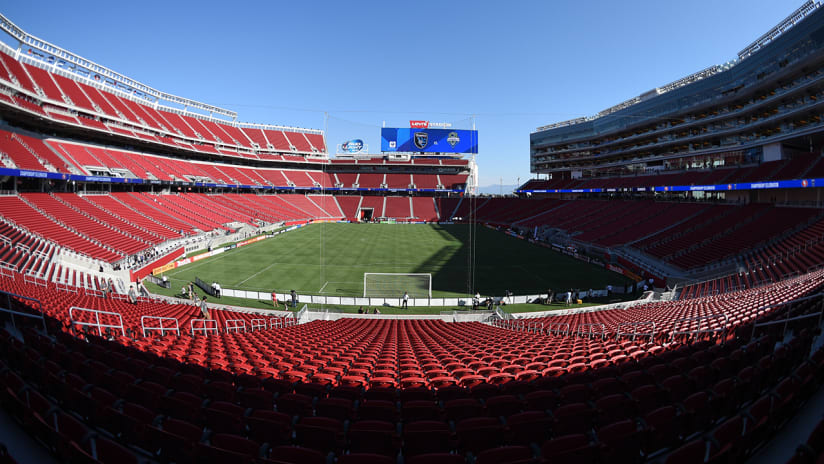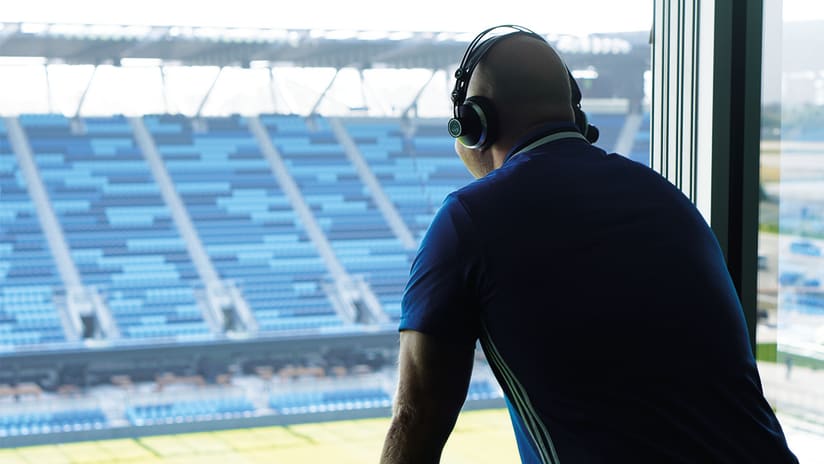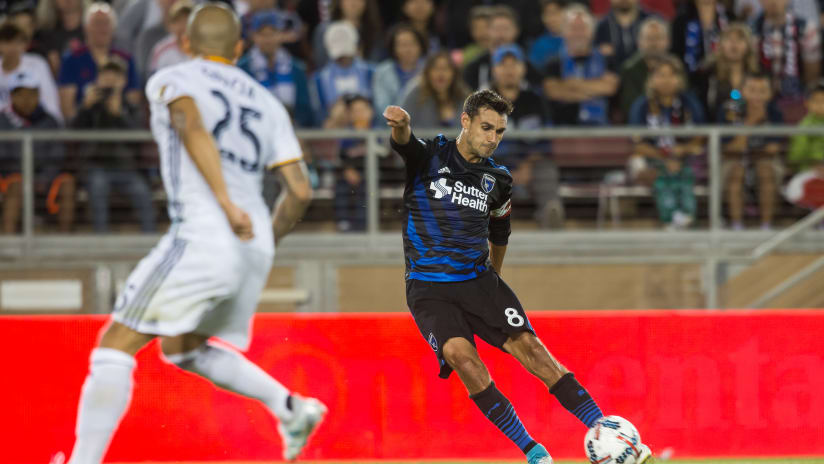CHICAGO (August 15, 2017) – The United Bid Committee of the United States, Mexico and Canada officially started its outreach for cities to declare their interest to serve as Official Host Cities for the 2026 FIFA World Cup™ by sending Requests for Information (RFIs) to 44 cities across the three nations. The RFI asks each city to declare its interest to take part in the bid process by September 5, 2017.
A total of 49 stadiums located in or around those 44 candidate cities will be considered for inclusion in the official bid that will be sent to FIFA by March 16, 2018.
After cities declare their interest, the United Bid Committee will review the submissions and intends to issue a shortlist of cities by late September. The Bid Committee will then provide more detailed bid documentation to the cities and conduct meetings to discuss any questions as candidate cities prepare their final bid, due early January 2018.
The Bid Committee plans to include 20-25 venues in its final bid to FIFA. If selected to host the 2026 FIFA World Cup™, subject to FIFA’s determination, it is anticipated that at least 12 locations could ultimately serve as Official Host Cities. If a city is not selected to host matches, there may be other opportunities to be involved in the 2026 FIFA World Cup™. Those cities, as well as other cities not on the initial list, could be selected as the location for the International Broadcast Center, host Team Base Camps or host major events such as the Preliminary or Final Draw.
The 2026 FIFA World Cup™ will be the first tournament with the expanded 48-team format and will require world-class facilities and infrastructure. The United States, Mexico and Canada are uniquely suited to accommodate FIFA’s high-level standards for hosting a FIFA World Cup™.
“The Host Cities included in our bid will be critical to its success — not only because of their facilities and ability to stage major events, but because they are committed to further developing the sport of soccer by harnessing the impact of hosting a FIFA World Cup — and looking beyond the game itself to make a positive contribution to our communities and the world,” said United Bid Committee Executive Director John Kristick. “We have had a great response so far and we’re looking forward to working closely with each city and determining the best venues for our official bid that we’ll submit next year.”
The 49 stadiums represent a wide spectrum of facilities, including stadiums for soccer and football as well as domed and retractable roof stadiums. All stadiums are required to have at least 40,000 seats for group stage matches, and a capacity of at least 80,000 to be considered for the Opening Match and the Final.
A list of the candidate cities and venues can be found at the end of this release.
Municipal leaders in each city have been asked to provide information about each city’s transportation infrastructure, past experience hosting major sporting and cultural events, available accommodations, environmental protection initiatives, potential venues and more. In addition to a stadium capable of hosting international soccer, each city has to propose top international-level training sites and locations for team base camps, and hotels for teams, staff and VIP’s. The Bid Committee will also evaluate cities on their commitment to sustainable event management, aspirations to develop soccer, and the positive social impact they anticipate in the local community and beyond stemming from the event.
FIFA established a deadline of August 11 for Member Associations to express their interest to bid to host the 2026 FIFA World Cup™. Morocco declared its intention to bid on this date. Both bidders must now submit their proposals for consideration by FIFA, with a decision to be taken at the FIFA Congress next June.
The United Bid Committee kicked off its efforts earlier this month by announcing the Board of Directors and the executive leadership team that includes Executive Director John Kristick, Managing Director of Technical Operations Jim Brown, Canada Bid Director Peter Montopoli, who is Canada Soccer General Secretary, and Mexico Bid Director Yon De Luisa, who is a Televisa Vice President.
The United Bid Committee’s Board of Directors includes Sunil Gulati (Chairman), Steven Reed (Canada), Peter Montopoli (Canada), Decio De Maria (Mexico), Guillermo Cantu (Mexico), Carlos Cordeiro (USA), Donna Shalala (USA), Dan Flynn (USA), Don Garber (USA), Carlos Bocanegra (USA), Julie Foudy (USA), Ed Foster-Simeon (USA) and Victor Montagliani (CONCACAF). Legendary sports executive Robert Kraft has been appointed as Honorary Chairman of the Board.
The three nations have hosted a combined 13 FIFA World Cups (men’s, women and youth), more than any other trio of geographically-connected nations, and set attendance records for five of those events.
| Proposed stadiums and metropolitan markets for further consideration | ||
| Metropolitan Market | Stadium | Capacity |
| United States (34 cities, 37 stadiums) | ||
Atlanta, GA | Mercedes-Benz Stadium | 75,000 |
Baltimore, MD | M&T Bank Stadium | 71,008 |
Birmingham, AL | Legion Field | 71,594 |
Boston, MA (Foxborough, MA) | Gillette Stadium | 65,892 |
Charlotte, NC | Bank of America Stadium | 75,400 |
Chicago, IL | Soldier Field | 61,500 |
Cincinnati, OH | Paul Brown Stadium | 65,515 |
Cleveland, OH | FirstEnergy Stadium | 68,710 |
Dallas, TX | Cotton Bowl | 92,100 |
Dallas, TX (Arlington, TX) | AT&T Stadium | 105,000 |
Denver, CO | Sports Authority Field at Mile High | 76,125 |
Detroit, MI | Ford Field | 65,000 |
Green Bay, WI | Lambeau Field | 81,441 |
Houston, TX | NRG Stadium | 71,500 |
Indianapolis, IN | Lucas Oil Stadium | 65,700 |
Jacksonville, FL | EverBank Field | 64,000 |
Kansas City, MO | Arrowhead Stadium | 76,416 |
Las Vegas, NV | Raiders Stadium | 72,000 |
Los Angeles, CA | Los Angeles Memorial Coliseum | 78,500 |
Los Angeles, CA (Inglewood, CA) | LA Stadium at Hollywood Park | TBD |
Los Angeles, CA (Pasadena, CA) | Rose Bowl | 87,527 |
Miami, FL | Hard Rock Stadium | 65,767 |
Minneapolis, MN | U.S. Bank Stadium | 63,000 |
Nashville, TN | Nissan Stadium | 69,143 |
New Orleans, LA | Mercedes-Benz Superdome | 72,000 |
New York/New Jersey (East Rutherford, NJ) | MetLife Stadium | 82,500 |
Orlando, FL | Camping World Stadium | 65,000 |
Philadelphia, PA | Lincoln Financial Field | 69,328 |
Phoenix, AZ (Glendale, AZ) | University of Phoenix Stadium | 73,000 |
Pittsburgh, PA | Heinz Field | 68,400 |
Salt Lake City, UT | Rice-Eccles Stadium | 45,807 |
San Antonio, TX | Alamodome | 72,000 |
San Diego, CA | Qualcomm Stadium | 71,500 |
San Francisco/San Jose, CA (Santa Clara, CA) | Levi's Stadium | 75,000 |
Seattle, WA | CenturyLink Field | 69,000 |
Tampa, FL | Raymond James Stadium | 73,309 |
Washington, DC (Landover, MD) | FedEx Field | 82,000 |
| Canada (7 cities, 9 stadiums) | ||
Calgary, Alberta | McMahon Stadium | 35,650 |
Edmonton, Alberta | Commonwealth Stadium | 56,335 |
Montréal, Québec | Stade Olympique | 61,004 |
Montréal, Québec | Stade Saputo | 20,801 |
Ottawa, Ontario | TD Place Stadium | 24,341 |
Regina, Saskatchewan | Mosaic Stadium | 30,048 |
Toronto, Ontario | Rogers Centre | 53,506 |
Toronto, Ontario | BMO Field | 28,026 |
Vancouver, British Columbia | BC Place | 55,165 |
| Mexico (3 cities, 3 stadiums) | ||
Guadalajara, Jalisco | Estadio Chivas | 45,364 |
Mexico City | Estadio Azteca | 87,000 |
Monterrey, Nuevo León | Estadio Rayados | 52,237 |




